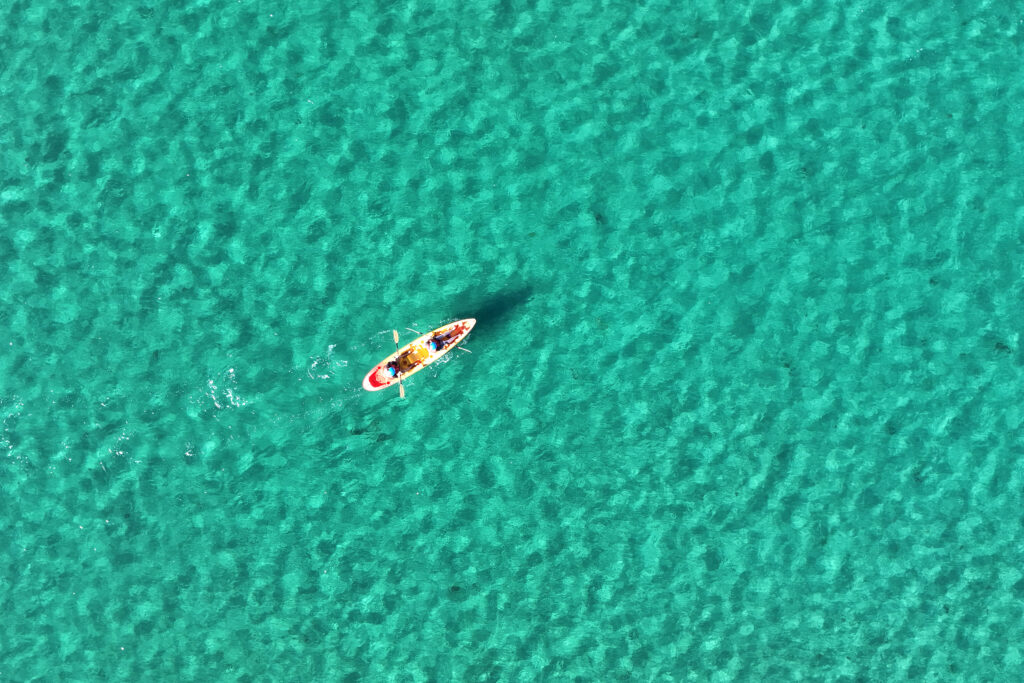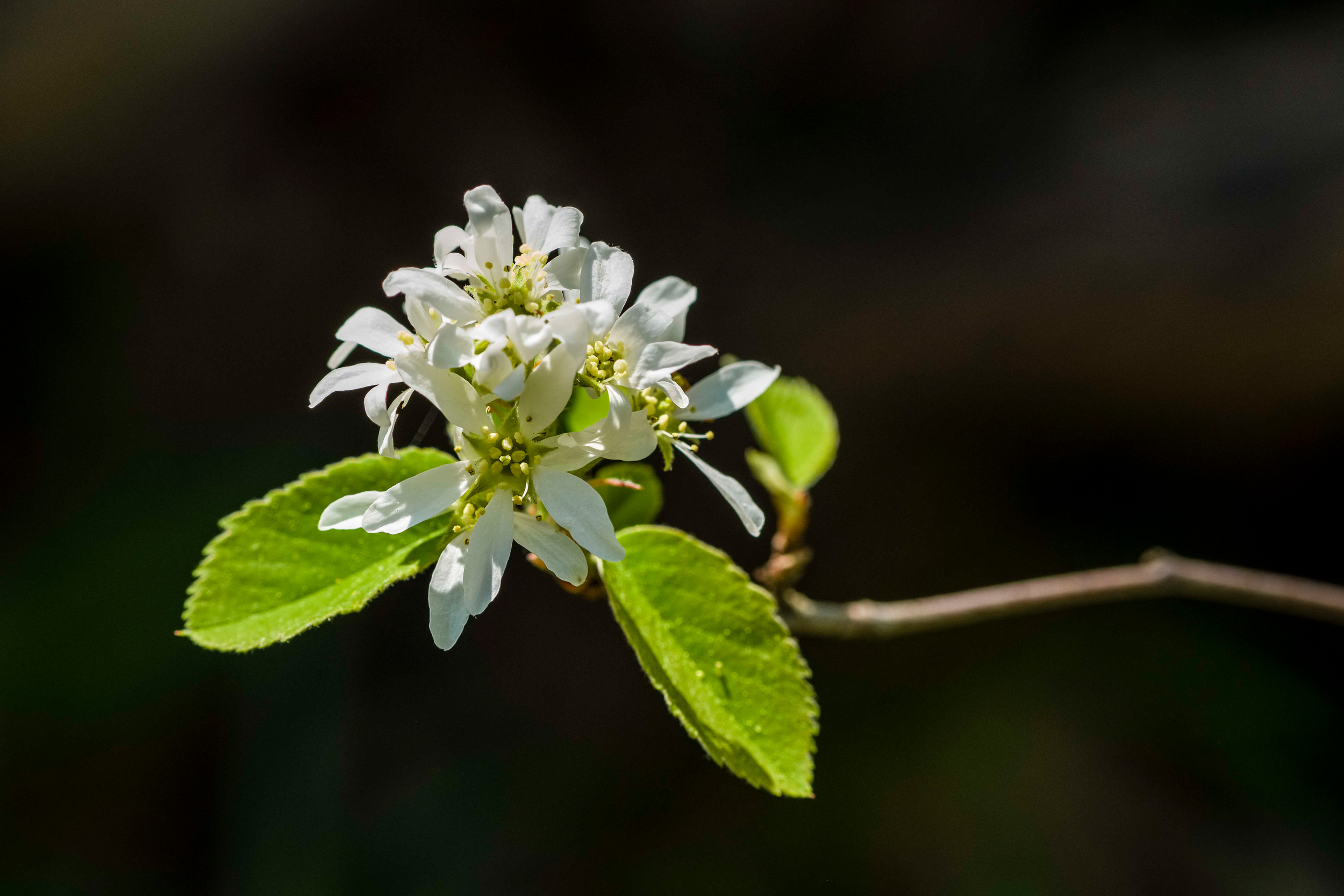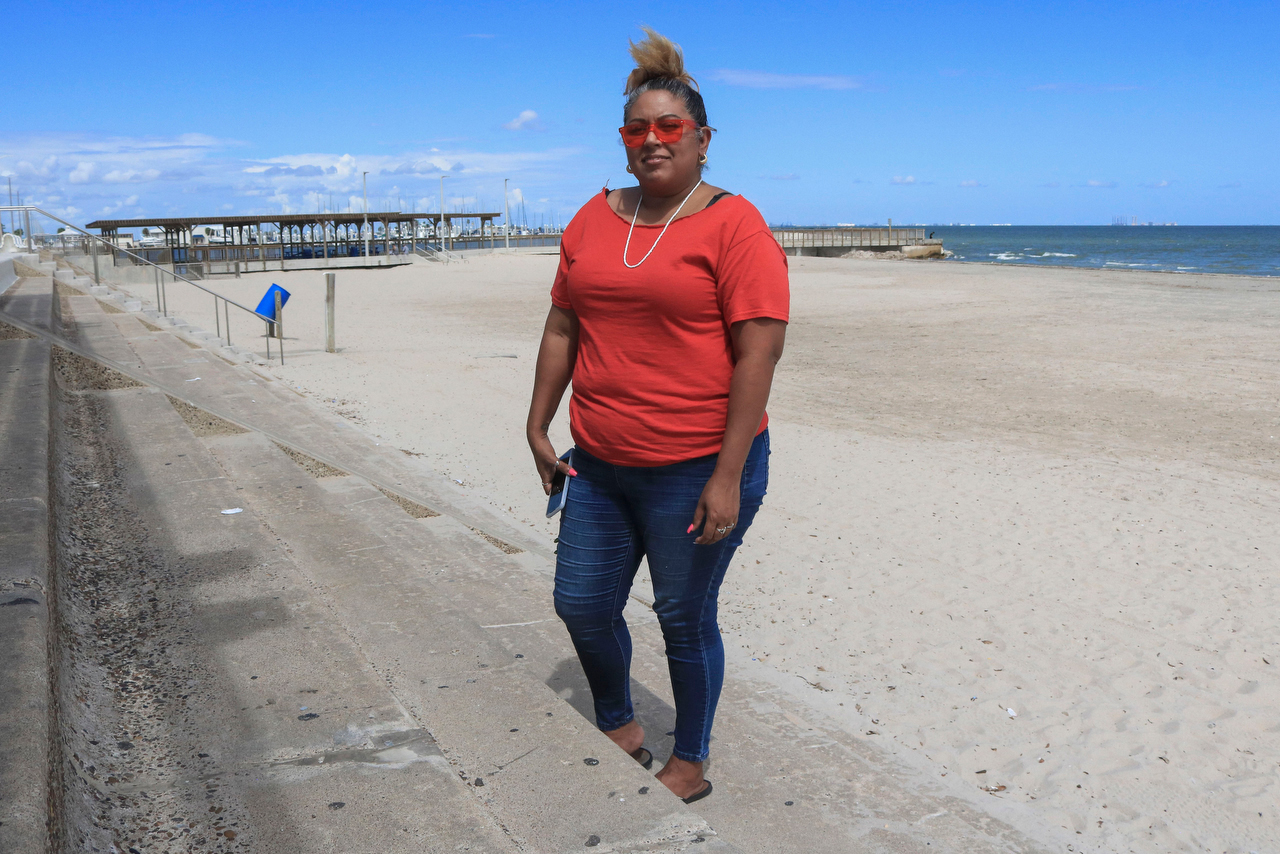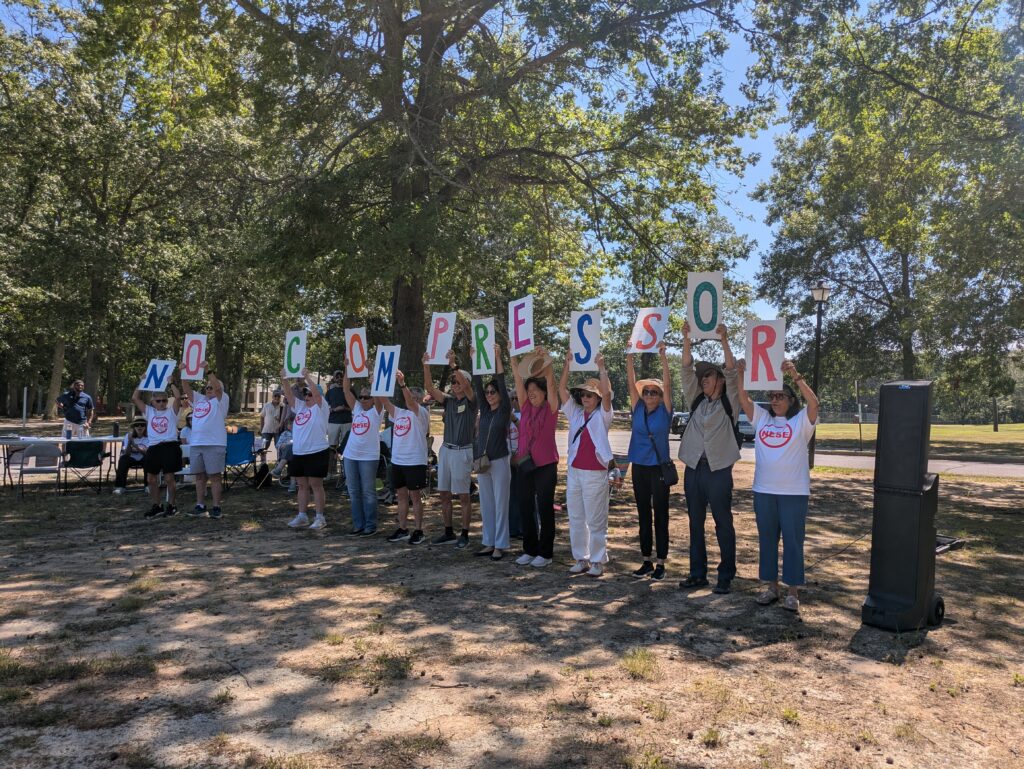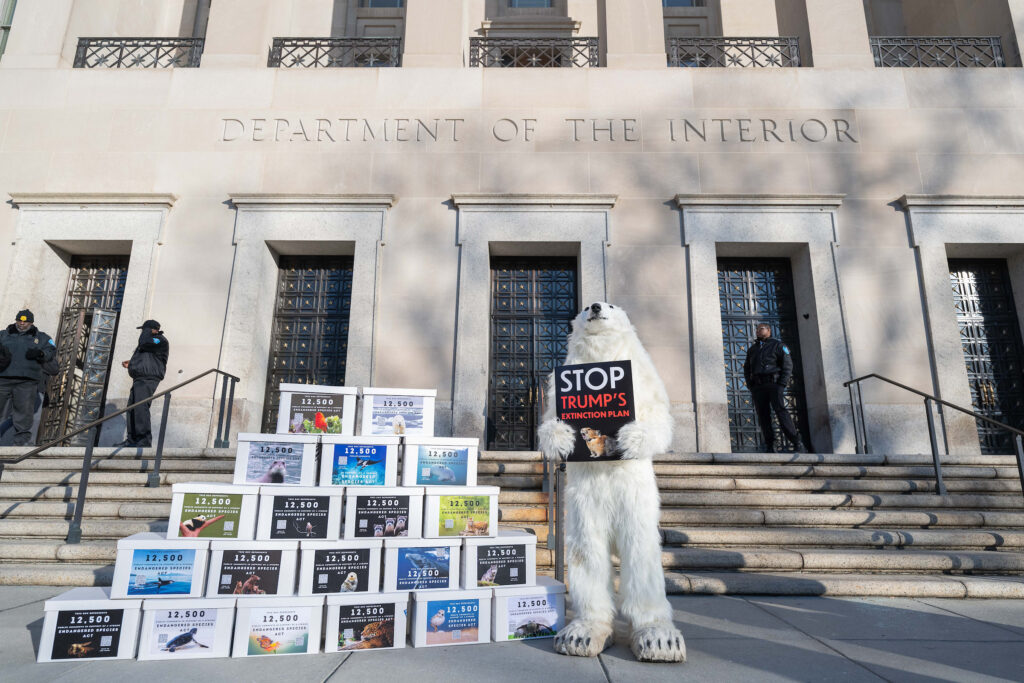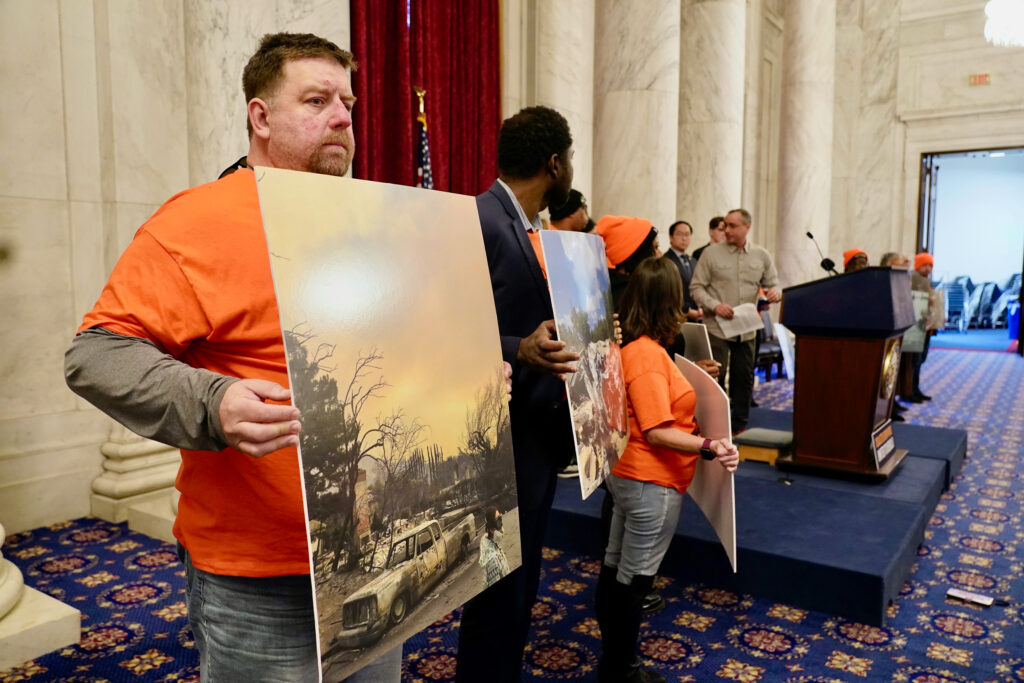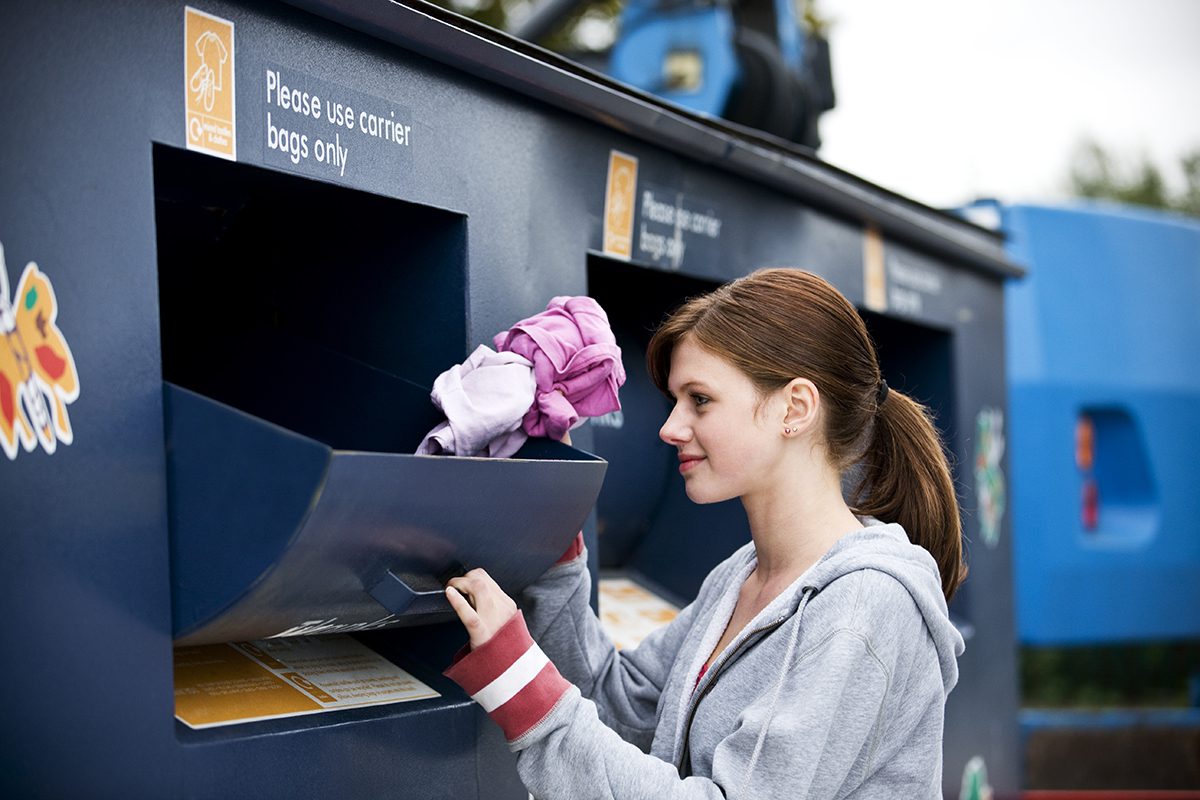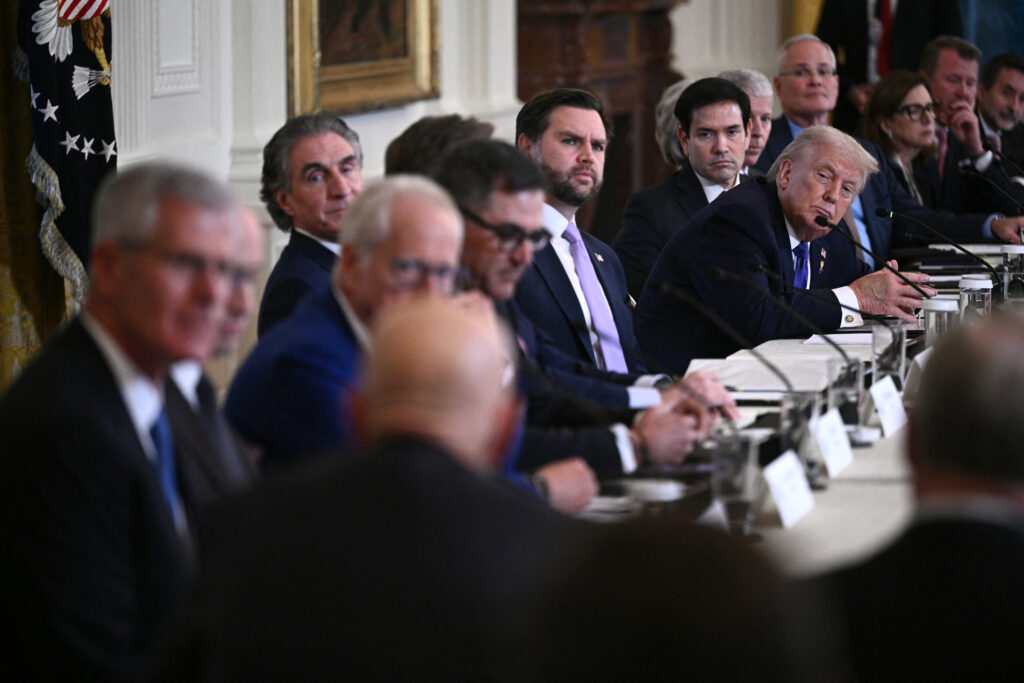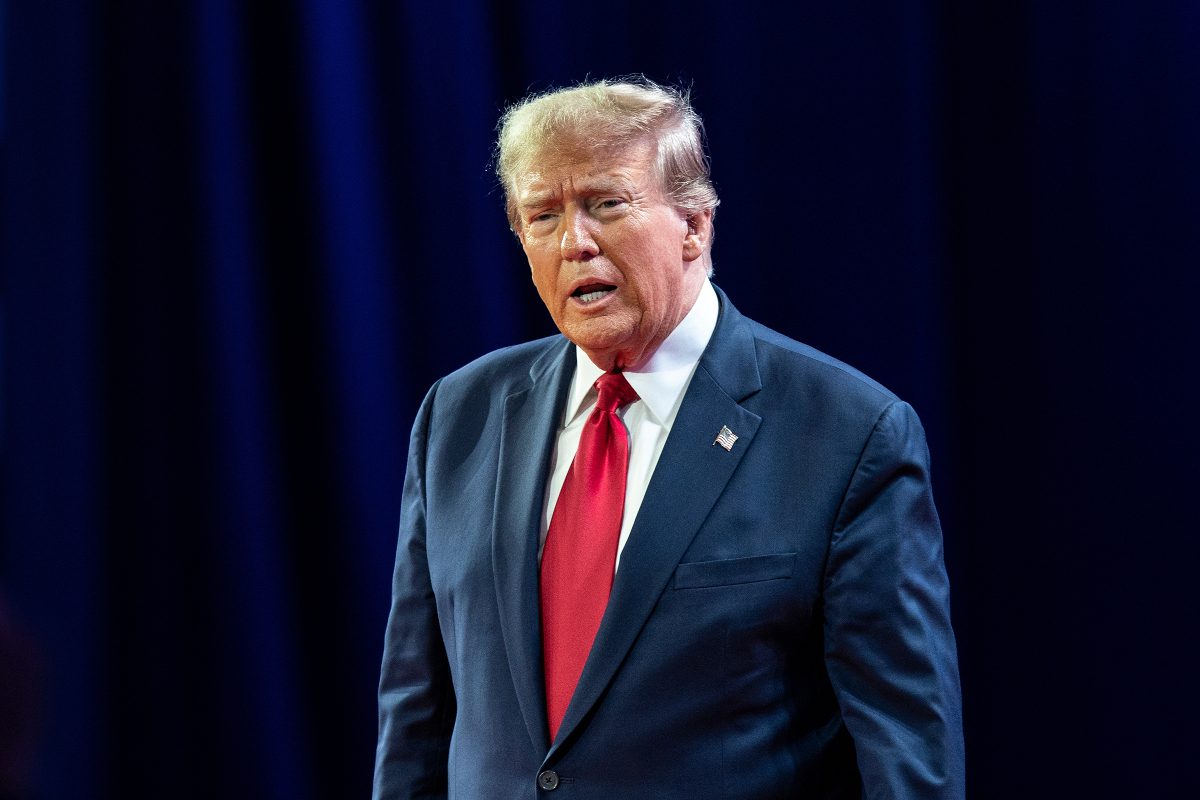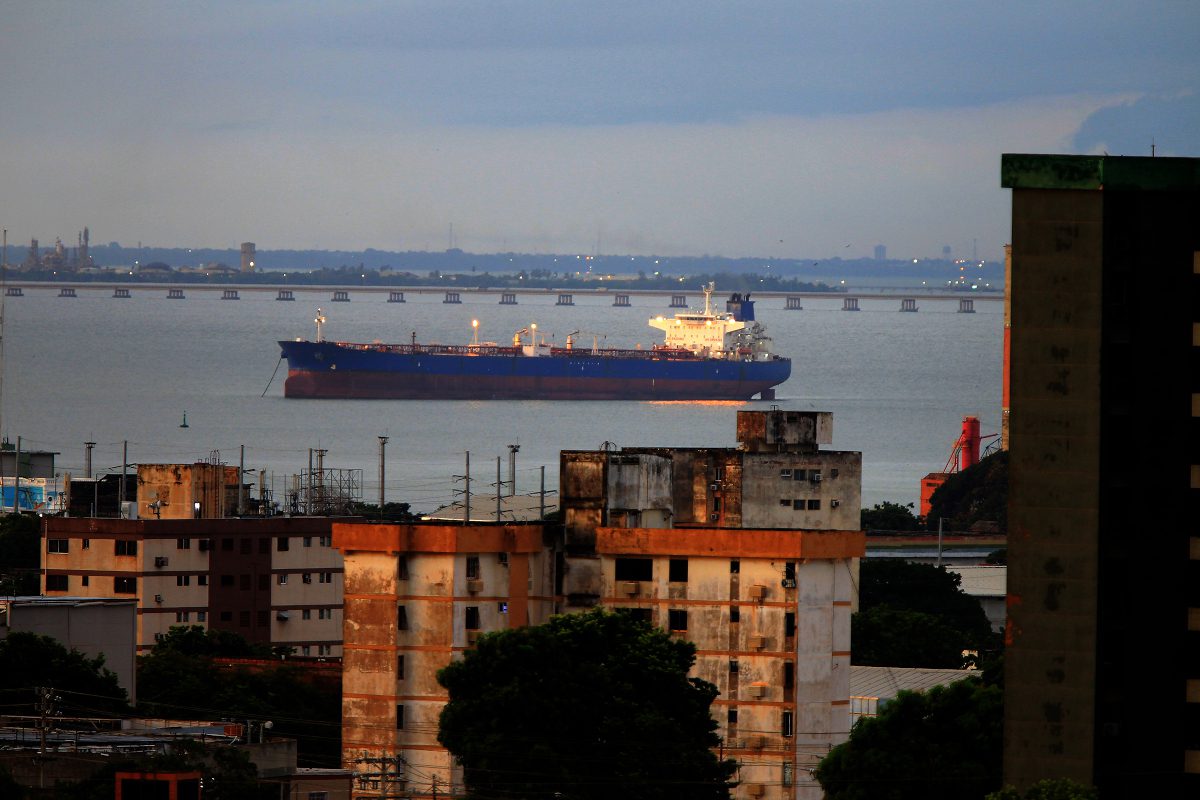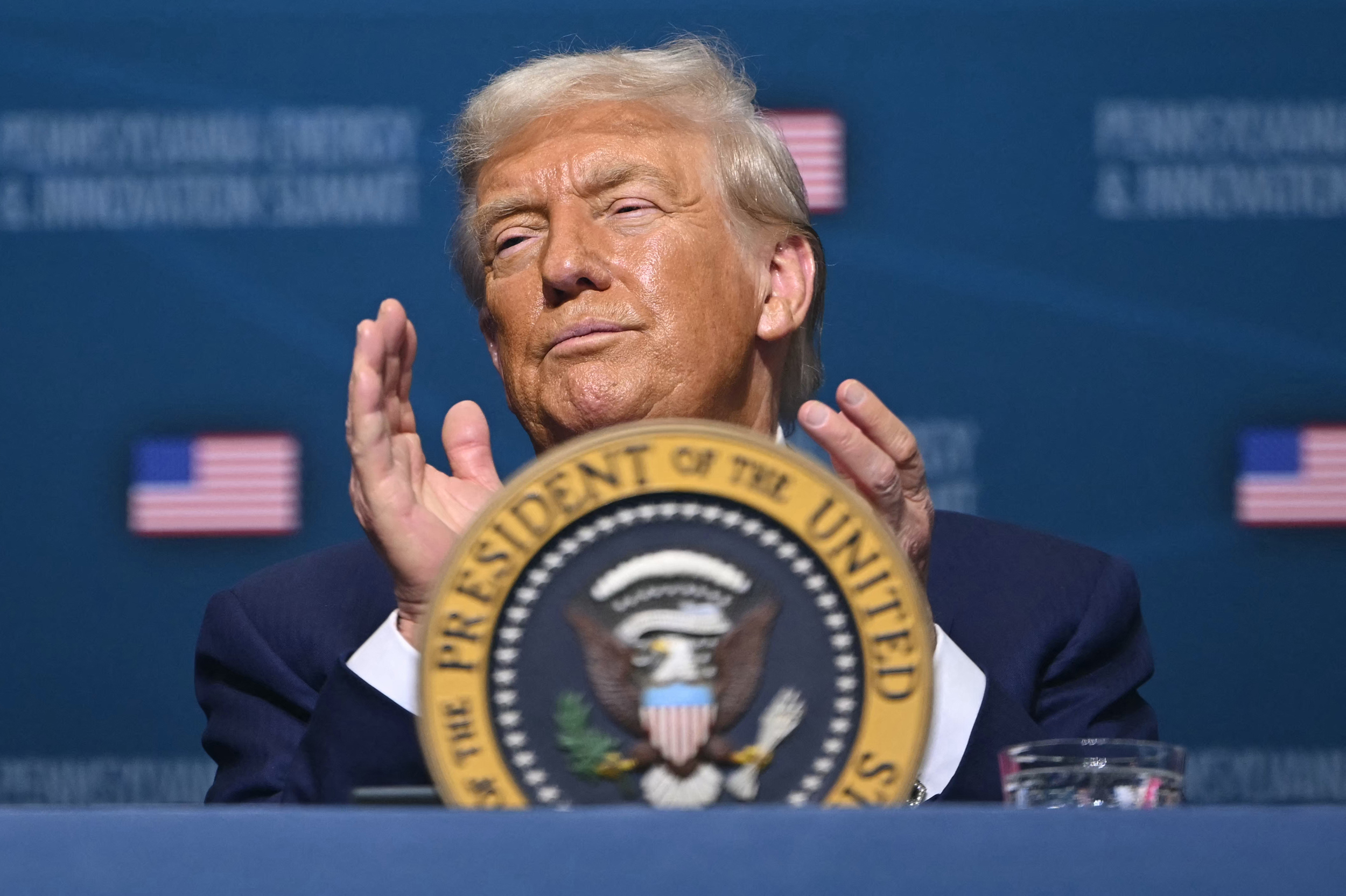From our collaborating partner Living on Earth, public radio’s environmental news magazine, an interview by Jenni Doering with Frederique Seidel, senior program lead on children and climate at the World Council of Churches.
Climate disruption poses an existential threat to the future of children around the world, with wildfires, floods, extreme heat and more putting lives in peril.
The children of today and tomorrow are not to blame for this crisis, and yet, future generations are likely to suffer it the most. And for some people of faith, that is an unacceptable moral failing, and as such, they feel called to remedy this injustice.
The World Council of Churches represents half a billion Christians and has published “Hope for Children Through Climate Justice,” a handbook for communities of faith looking to hold financial actors accountable for their fossil fuel investments.
Frederique Seidel is the senior program lead on children and climate at the World Council of Churches. This interview has been edited for length and clarity.
JENNI DOERING: How would you describe this handbook, and why did you and your colleagues create it?
FREDERIQUE SEIDEL: This handbook is a source of hope for children. The main goal is really to save children’s lives and to create perspectives for children to project themselves in a beautiful future. We tackle one of the most urgent matters for child protection, and that is the root causes of global warming.
North and south, east and west, children everywhere have these fears when they see that there is massive funding invested into fossil fuel expansion, while science tells us that over 75 percent of greenhouse gas emissions are caused by fossil fuels. This handbook is there to help tackle this root cause and use, very simply, the laws which allow human beings to have their right to life respected. We show in this handbook how in different countries, people of faith can seize the very basic legal frameworks to defend the younger generations’ right to a livable future.
DOERING: The World Council of Churches includes many different Christian denominations, from Orthodox to Anglican, Baptists and Lutherans. How does its religious and ethical framework influence how it approaches climate justice?
SEIDEL: The main references for this work were science and the Bible. We have crafted it together with leading scientists, with lawyers, but also with theologians who have helped us for every single chapter to anchor it in the gospel. This is very important, as the mandate of the World Council of Churches is really to support its member churches in 120 countries, representing over half a billion Christians. And as you said, their backgrounds and denominations are of a great variety. So we focus on the common denominator of all the churches, but also of all the religions—we work very much interfaith—and the most important common denominator is the right to life and to a healthy environment.

DOERING: I think I hear you saying that even across many different countries where your member churches exist, there are shared human rights that are enshrined in the law, in the constitutions, and that using those basic rights as a basis for bringing legal action to challenge what’s going on can be a really powerful tool.
SEIDEL: Exactly. There is, for example, the UN Convention on the Rights of the Child, and it has, since two years ago, a so-called General Comment 26 on Children and Climate, which is an authoritative guidance for governments on the rights of children when it comes to climate. So it is looking into that, but also into many international human rights frameworks which are not used enough to protect children.
We also show in this handbook that there are many good examples of fossil fuel companies which have transitioned completely to renewables without dismissing any employees. This is a very important aspect, because this handbook is not against anyone. It is not even to target fossil fuel companies. It’s just to show how to help them transition to renewable energies faster.
DOERING: What roles are your member churches playing in this fight for climate justice?
SEIDEL: This handbook is inspired by cases that were developed by churches, including in the U.S., but also in South Korea and Switzerland, in Sweden and in some African countries, too. We have seen churches really at the forefront of legal action, because people of faith have a particular responsibility anchored in the Bible when they see something happening that is creating a lot of suffering.
You may have heard of Dietrich Bonhoeffer, who has said that if you see someone driving into a crowd of innocent people, you cannot just watch and pick up the dead and heal the wounded. You must actually take the steering wheel out of that driver’s hands, and that is the goal of this handbook. And also to bring those who are currently driving into this wall of a future at huge risk, to make them change policies before it is too late.
We also invite people to observe if they may be victims of disinformation, as we don’t actually want anyone to go to court. That’s not the goal of the handbook. The goal is to make the policies change before the cases actually reach the courtroom.
DOERING: Explain that to me. It seems like you’re trying to hold those responsible for the climate crisis accountable, including financial actors, but you’re saying you don’t actually want these cases to go to court.
SEIDEL: Exactly, because we have seen how, in many instances, by simply having a case being developed, many of the companies or financers do not want to see headlines of them being targeted, especially not by moral leaders and institutions of faith.
We have a case in Australia, a shareholder action case where every single request was fulfilled before the case reached the courtroom. That is the ideal scenario—when people then realize that what they’re doing is threatening lives, and that they can even make more money by investing into renewable energies.
DOERING: I have to say that picturing fossil fuel companies or financial actors that are funding the fossil fuel industry being so cooperative feels hard to picture, at least in the U.S. at this moment. What gives you the faith that this is really a collaborative exercise, and not just parties at odds and having to take it to court?
SEIDEL: What gives me a strong faith is just the experience from the past that many things seem unrealistic or impossible.
I come from a German and French background. My grandfather, who was a French war prisoner tortured by the Nazis, said that if someone would have told you Germany and France will become best friends and create the dynamic for the European Union, people would have just said it’s ridiculous, it’s impossible.
Another example is the Berlin Wall. Nobody at all would have ever believed that that wall would disappear—and that change was also driven by the churches.
What needs to happen, according to science, is something which, right now, all the opposite is happening. But we have seen many amazing testimonials, even of leaders of big, big media companies, who have acknowledged that they really believed that climate change was just one theory and that it was not necessarily true. But then they understood the IPCC report, and they saw that this was real, and they regretted ignoring global warming for so long. Many of these testimonials come after conversations with their children or grandchildren. So we see quite an amazing transformation in people, and this handbook encourages every leader in the world to have a quick check up with their own conscience. And our goal is not to, as I said, sue anyone per se.
DOERING: I understand that you work alongside children of different ages in having some of these tough climate conversations. Can you give us a little bit of insight into how they’re feeling about the climate crisis and their hopes or concerns about the future?
SEIDEL: Most of the young people who have urged us to help in this area of work are suffering a lot. You may have seen the Montana case in the U.S., which was successful, which was a youth-led climate litigation. When you see the images, they are all smiling about the success, but when you talk to the plaintiffs, they do explain how this has really spoiled their youth and their childhood, that they felt so stressed that there was no way to have any lightheartedness anymore for playing football or dancing. Every single minute has to be invested in saving their future.
This project aims to take away a far-too-heavy burden from childrens’ shoulders. So we do focus on adults. We would like adults to take the lead, and for those children who already know and who understand the science, we welcome their collaboration, but we would never go to a child or a teenager and make them collaborate. We believe that it’s important for children to have this lightheartedness and benefit from the right to play and that they can trust adults will take care of fixing what is threatening everyone’s lives.
DOERING: It’s an interesting distinction that you’re making, to specifically say, we’re doing this because of the children, but we want them to be able to have a childhood, and this isn’t their responsibility.
SEIDEL: Yes, and I also want to share an example from a 12-year-old girl from Kenya who actually contacted me asking if I could help her and 10 other children from north and south to meet with Emmanuel Macron, the president of France. I thought that was not a realistic request, but I agreed that we meet next to the new Global Financing Summit, where Macron was convening all the world leaders, and we then helped them craft a message for the world leaders.
But this girl, Ellyanne Wanjiku, really enabled us to enter the main room where all the leaders were. She looked into the eyes of every single security guard and prayed her way in. Suddenly we were standing there with the leaders.
This is an example to show how children can also move mountains through their faith, and they have such a strong wish to have a livable future that they’re ready to try so many things, and often they just are successful.
About This Story
Perhaps you noticed: This story, like all the news we publish, is free to read. That’s because Inside Climate News is a 501c3 nonprofit organization. We do not charge a subscription fee, lock our news behind a paywall, or clutter our website with ads. We make our news on climate and the environment freely available to you and anyone who wants it.
That’s not all. We also share our news for free with scores of other media organizations around the country. Many of them can’t afford to do environmental journalism of their own. We’ve built bureaus from coast to coast to report local stories, collaborate with local newsrooms and co-publish articles so that this vital work is shared as widely as possible.
Two of us launched ICN in 2007. Six years later we earned a Pulitzer Prize for National Reporting, and now we run the oldest and largest dedicated climate newsroom in the nation. We tell the story in all its complexity. We hold polluters accountable. We expose environmental injustice. We debunk misinformation. We scrutinize solutions and inspire action.
Donations from readers like you fund every aspect of what we do. If you don’t already, will you support our ongoing work, our reporting on the biggest crisis facing our planet, and help us reach even more readers in more places?
Please take a moment to make a tax-deductible donation. Every one of them makes a difference.
Thank you,



